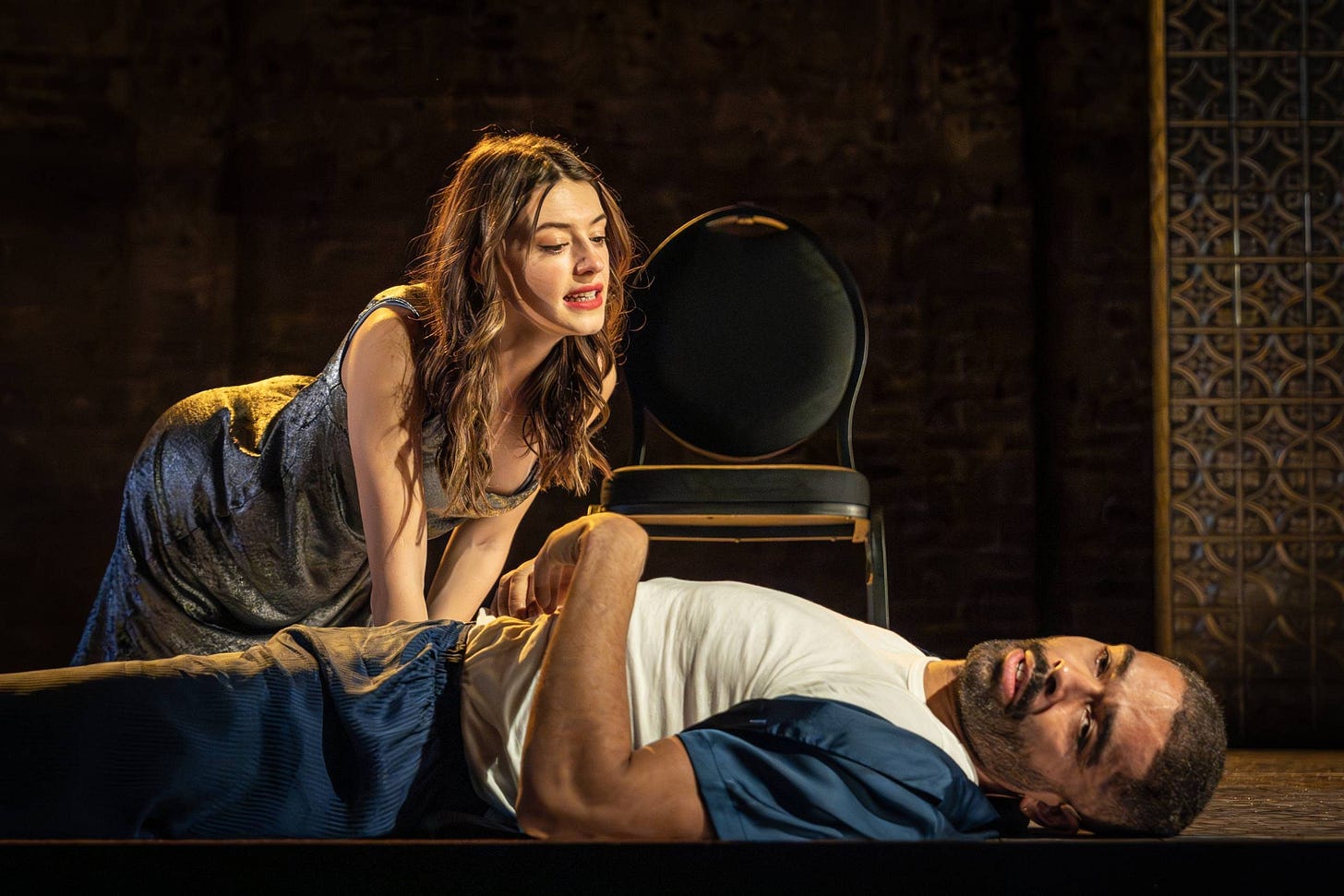The Most Original TV Show Ever Is Back (No, not The Traitors)
You been passing the buck. This disgust with mendacity is disgust with yourself. You!—you dug the grave of your friend and kicked him in it!—before you'd face the truth with him!
In This Issue:
A review of Cat On A Hot Tin Roof at The Almeida
New series of Severance on Apple TV
What to see in the cinema this week
Recommended reading: West End vs Broadway; Sarah Kane remembered
"It’s possible to romanticise Sarah by putting her in this sort of dead poets society. But it’s not romantic that she died young. It’s brutal and sad.” Mark Ravenhill and Mel Kenyon speak about Sarah Kane to The Telegraph ahead of 4.48 Psychosis returning to the Royal Court later this year with its original cast.
“London is doing beautifully, but it is becoming so much more difficult to transfer work from London to New York.” Daniel Thomas’s piece in the FT compares the fortunes of the West End and Broadway.
A Trip To The Cinema
The Brutalist
Following a whirlwind of critical adulation at film festivals, Brady Corbet’s sprawling 215-minute opus (plus a mandatory 15-minute intermission) has galvanized an awards campaign formidable enough to coax Academy voters into clearing their schedules. And yet, scale is the film’s essence—a maximalist biopic of the fictional Hungarian-Jewish architect László Tóth (played by the excellent Adrien Brody), whose journey begins in 1945 as he escapes the wreckage of war-torn Europe for the gleaming promise of postwar America. Here, Tóth is met with seismic collisions: between assimilation and identity, art and commerce, and the sobering realisation that even the most lauded cinematic masterpieces must contend with the finite patience of their audience.
TV to look forward to:
Severance S2
When it came out in 2022, Apple TV+'s surreal workplace show made a huge splash, quickly becoming a Melgund Road favourite. Now it’s finally back, and everything that made it stand out the first time—playful storytelling, layered performances—is still there. Honestly, it’s one of the most original shows I’ve ever watched. If you missed Season 1, now’s the perfect time to catch up. With a budget rumoured to be $20 million per episode, the new season is already getting rave reviews. I can’t wait to dive back in.
Reflections
Cat On A Hot Tin Roof at The Almeida
Rebecca Frecknall’s growing reputation as a director of Tennessee Williams’ plays invites a fascinating tension. Williams’ portraits of women often verge on the unkind, yet Frecknall has repeatedly turned her gaze toward these fraught, deeply human stories. In Cat on a Hot Tin Roof, we meet Maggie (Daisy Edgar-Jones), married to Brick (Kingsley Ben-Adir), a man lost in the depths of drink and detached from her in every meaningful way. Maggie is a character who lives and dies on her ability to evoke desire, frustration, and relentless vitality. It’s a daunting role, and while full credit goes to Edgar-Jones for stepping boldly from screen to stage, her portrayal ultimately falters.
Casting Maggie is crucial; she anchors the entire first act, which hinges on her restless, feline energy. Edgar-Jones, striking as she may be in a silver sheath of a dress, glides and prowls, but her Maggie lacks the fire and depth to compel. The lust, yearning and humiliation that define her relationship with Brick feel muted. Even her physicality—crawling seductively on a baby grand—fails to convince, evoking not passion but precariousness; I was more worried that a glass might shatter at any moment.
In this production, sympathy shifts unmistakably to Brick. Kingsley Ben-Adir’s performance is a nuanced portrayal of a man crushed under the weight of his family’s expectations, particularly the suffocating love of his father, Big Daddy (Lennie James). The dynamic between Brick and his overlooked elder brother, Gooper, underscores the play’s commentary on favoritism and familial duty. Meanwhile, Big Mama (Clare Burt), whom Big Daddy derides repeatedly as “fat,” becomes a figure of quiet poignancy, adored by the audience if not by her husband.
One puzzling directorial choice was the embodiment of Skipper, whose ghostly presence lingered awkwardly on stage. As Brick’s lost companion, Skipper is most potent as an absence, a haunting figment of memory and longing. Here, his corporeal presence—serving as pianist (and Brick’s bartender)—felt incongruous, his lack of chemistry with Brick diminishing the emotional undercurrent of their bond.
At over three hours, including two intervals, this production is a marathon, made weightier by Frecknall’s decision to incorporate elements from multiple versions of Williams’ text. While this approach is ambitious, it sacrifices coherence and pacing, particularly in the sprawling first act. Maggie’s repetitive monologues cry out for judicious editing to preserve their intensity without exhausting the audience.
In the end, this Cat on a Hot Tin Roof labours under its own ambition. Moments of brilliance surface - Ben-Adir’s Brick chief among them alongside James’ menacing Big Daddy- but they are too often drowned in a flood of unfocused direction and uneven performances. Frecknall’s signature sensitivity to Williams’ work remains evident, but here, it feels like a house of cards built on shaky foundations.







